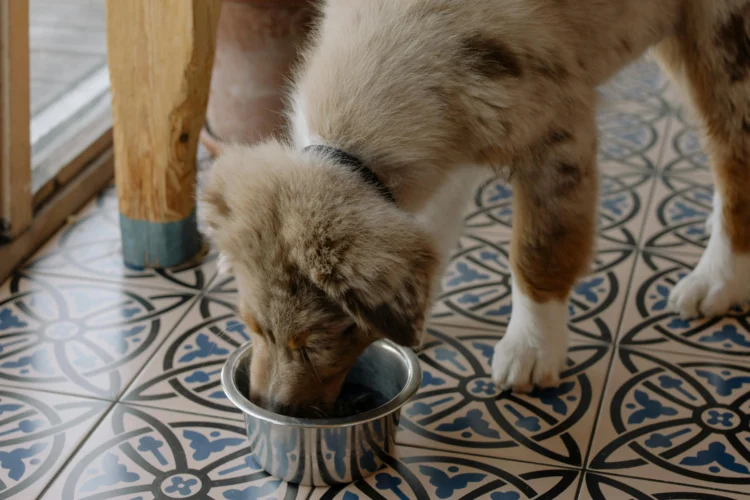Introduction: Exploring the Debate
Pet owners are often bombarded with conflicting advice regarding feeding their furry companions. One common question that arises is whether adult dogs can eat puppy food. This comprehensive guide will delve into the debate, examining the pros and cons and providing valuable insights to help you make an informed decision for your beloved canine companion.
Understanding Puppy Food
Before addressing whether adult dogs can eat puppy food, it’s essential to understand what sets puppy food apart from adult dog food. Puppy food is specifically formulated to meet the unique nutritional needs of growing puppies. It typically contains more protein, fat, and calories to support their rapid growth and development. Additionally, puppy food often contains essential nutrients such as DHA, calcium, and phosphorus, crucial for bone and brain development.
The Debate: Can Adult Dogs Eat Puppy Food?
While puppy food is designed to meet the nutritional requirements of growing puppies, some pet owners wonder whether it’s also suitable for adult dogs. Let’s examine both sides of the debate:
Arguments in favor: Dogs Eat Puppy Food
- Nutrient-Rich Formula: Puppy food is formulated to be nutrient-dense to support puppies’ rapid growth and development. Some argue that adult dogs can benefit from the higher protein, fat, and essential nutrients in puppy food.
- Palatability: Many dogs find puppy food more palatable due to its higher fat content and spicy aroma. Feeding adult dogs puppy food may encourage them to eat more enthusiastically, especially if they are picky eaters.
- Active Lifestyle: Adult dogs with high energy levels or those engaged in strenuous activities such as agility training or working may require a diet higher in calories and protein. Puppy food may provide the extra energy and nutrients needed to support an active lifestyle.
Arguments Against: Dogs Eat Puppy Food
- Nutritional Imbalance: Puppy food is specifically formulated to meet the needs of growing puppies, which differ from those of adult dogs. Feeding adult dogs puppy food may lead to an imbalance in their diet, as it may contain excessive levels of certain nutrients such as protein and fat.
- Weight Gain: The higher calorie content in puppy food may lead to weight gain in adult dogs, particularly those with lower activity levels or prone to obesity. Excess weight can contribute to various health issues, including joint problems and heart disease.
- Digestive Upset: When fed puppy food, adult dogs may experience digestive upset, such as diarrhoea or vomiting. Their digestive systems are not designed to handle the higher levels of fat and protein found in puppy food, leading to gastrointestinal issues.
Making an Informed Decision
Ultimately, whether adult dogs can eat puppy food depends on various factors, including their age, size, activity level, and overall health. Here are some considerations to keep in mind:
- Consult with Your Veterinarian: Before making any changes to your dog’s diet, consult your veterinarian. They can provide personalized recommendations based on your dog’s needs and health status.
- Choose Quality Nutrition: Whether you feed your dog puppy or adult dog food, prioritize quality nutrition. Look for reputable brands that meet organizations’ nutritional standards, such as the Association of American Feed Control Officials (AAFCO).
- Consider Your Dog’s Individual Needs: Consider your dog’s age, size, activity level, and any underlying health conditions when selecting their diet. A diet tailored to your dog’s needs will help support their overall health and well-being.
Conclusion: Navigating the Puppy Food Debate
In conclusion, whether adult dogs can eat puppy food is complex and has no definitive answer. While puppy food may offer certain benefits for adult dogs, it’s essential to consider the potential drawbacks and consult your veterinarian before making any dietary changes. By prioritizing your dog’s needs and providing quality nutrition, you can ensure they lead a happy, healthy life.




0 Comments